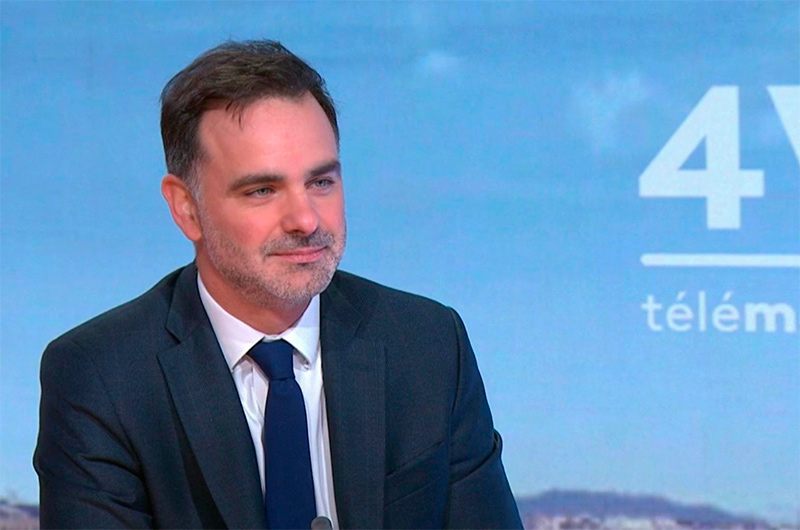The new reform of the French Government gives way to the need for more work.
- The CFDT will also be present in the contractual reform movement with the unions CGT, FO, CFE-CGC, CFTC, Unsa, FSU and Solidaires, in protests at the level of the Northern Basque Country. The first mobilisation of this new phase is scheduled for 19 January. We have carefully looked at the reform, giving rise to the explanations of the government and the reading of the opponents:

Elisabeth Born, French Prime Minister, presented the reform this week. It will be presented on 23 January in the Council of Ministers and on 30 January in the Assembly on Parliament's social affairs, and then discussed in Parliament from 6 February. Against them, the trade unions restart the mobilisation against the appointment of 19 January. Point by point the reform drawn up by the French Government, giving rise to arguments for and against:
Retrospective age: 62-64 years
The Government wants to delay the entry age to the toilet for two years, from 62 to 64 years. From September 1, the age will increase three months each year, reaching 64 years by 2030. It is about taking into account the reality of very young people: people who started working in 15 years will be able to retire in 58 years, those who started in 16 years in 60, those who started in 17 years in 61 and those who were between 18 and 20 years in 62 years.
Pay an extra year, i.e. 43
The adjustment started in 2020 is ahead of the need to pay more and more for full pensions. This will also be done progressively, forcing the contribution from 43 years to 2027 in exchange for the complete toilet.
However, work should be done for up to 67 years, ensuring the right to full toilet, even if not every year.
Disappearance of special schemes
The French Prime Minister announces the suspension of most special regimes to date. Out of a total of 42, distributed by professions (officials, train drivers, farmers, etc.) ) deducting pension differences between them. The Prime Minister follows his course to match the portrait system in the name of "justice and progress". From 1 September onwards, staff employed in these sectors will be incorporated into the general system of portraits, while existing staff will continue on a special basis.
Central Government Argument
"The pension system is not financially balanced" and that is why citizens need to do more work not to get to the expected hole – EUR 12 billion in 2027, EUR 21 billion in 2035. In front of them, opponents claim that there is no need to channel such a big change. Thus, the structure of Attac warns that the deficit foreseen by the Pension Guidance Board (COR) represents 4% of pensions: "A very weak increase in the contribution rate, between 0.8 and 1 points, would be enough to extend over the entire decade". In addition, in the last two years the toilet has been in surplus, EUR 900 million in 2021 and EUR 3.2 billion last year.
The Government of France, which is currently active 1.7 for a toilet flush and will be 1.3 in twenty years' time, says that more and more toilets need to be involved in this amount. But, in itself, the prolongation of working time does not solve the problem, and other changes should be redirected to make it really effective, because between retiring and active work there is also unemployment and because the employment of the elderly is the current reality. In other words, if they are unemployed, with social aid the government deficit will not be reduced.
For the opponents, a reform that increases injustice
The minimum withdrawal will be about EUR 1,200, that is to say, the least paid would have to receive about EUR 100 more than the current one. Senior labor unions claim that the poorest citizens suffer most of the change. Although they are always allowed access to the retrospective for those who have started work long ago, they will be delayed for two years – if until now there were 60 years, the reform extends to 62 years. Knowing that in the physical and hard work sectors, young people and those who started without the traditional diploma, one can think that this two-year extension will be excessive for many.
While they are still able to access retirement earlier for those who have started work long ago, they will be delayed for two years – if until now there were 60 years, the reform extends to 62 –
The challenge of securing the employment of the elderly
The employment rate for the 55-64 years is 56% in the French State, much lower than in the rest of Europe (60.5% in the European Union) – mainly because employers prefer to separate themselves from older workers with higher wages to accommodate younger people with lower wages. Aware of the situation, the Government aims to guide a couple of measures, even if a low impact is anticipated. Let us assume that companies with more than 1,000 older workers and those with more than 300 workers from next year will have to determine the proportion of employees over 50 years of age. They will have to make the figure public and they will not have to be forced to do so.
It is also intended to provide older workers with a way of meeting between toilet and part-time work, to speed up the working period of recent years, and perhaps to make it easier for employers to decide to use them.
Intention to take into account work fatigue
In 2017, the Sumer Occupational Risk Survey revealed that 13.6 million French metropolitan workers, 61% of their workforce, were "affected by one or more fatigue factors" during the week before the forced medical visit. Among them, more than 10.7 million workers with significant ergonomic physical barriers: postural fatigue (44% of the workforce), repeated heavy load (8%) and exposure to vibration (7.6%). High, in 2021 the employers had only 650,000 of those 13.6 million people declared "laborious".
The government has difficulty in dealing with this problem, and although the words are intended to bring forward the toilet, the words do not materialize: of the 13.6 million euros, the 643.243 were given that hard conditioning work last year, but only 10,000 were able to access their portraits earlier.
The Prime Minister has made it clear that four out of ten workers will be able to go for portraits from the age of 64, but, as reported by the figures, the unions do not believe in this.
What is the thought of the small trace of the complaints made on 28 April and that their only succession is the continuous chain of accidents and deaths of workers. In Azkoitia, once again in construction, a 62-year-old worker dies in a very common and therefore avoidable... [+]
When grandparents were young, retirement was represented as a time to enjoy life. Period of collection of the fruits of the work carried out during these years. What a satisfaction! It is a pity that young people today are never able to feel. You might think I'm a pessimist, but... [+]





















